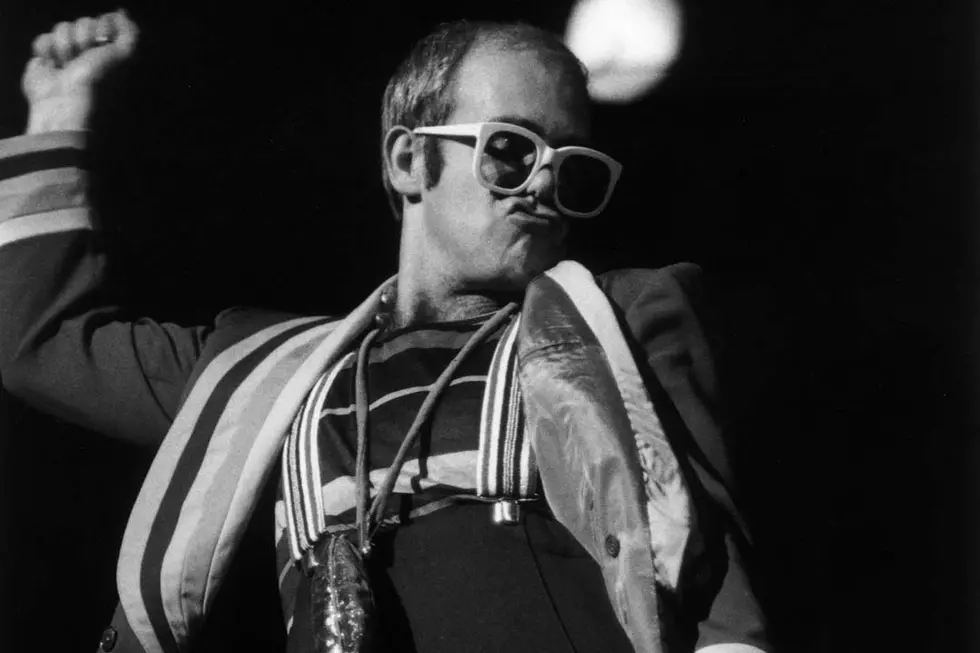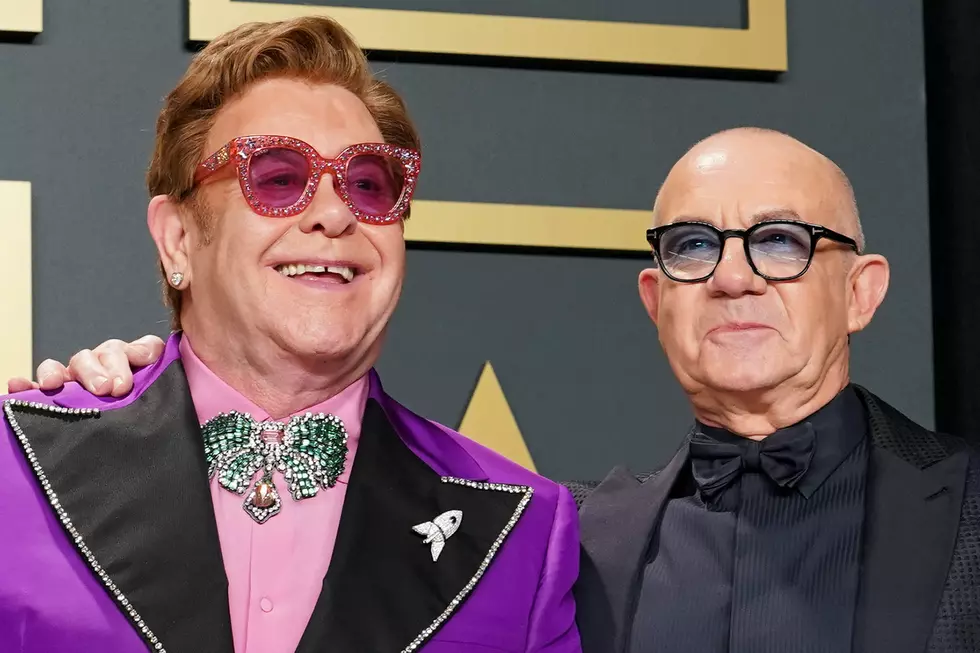
When Elton John Made a Concept Album About How Awesome He Is
You really couldn't get any bigger than Elton John was in 1975. Going into the year, he had logged 10 Top 10 singles (with three of them reaching No. 1) and eight Top 10 albums (with five chart-toppers – including the previous year's Greatest Hits, which stayed there for 10 weeks).
So what was next for music's hugest star? A stand-alone single celebrating tennis legend Billie Jean King, a stateside reissue of his debut album (which never made it overseas the first time around) and a concept album about just how awesome it was to be Elton John in 1975.
Captain Fantastic and the Brown Dirt Cowboy, which was released in May 1975, got its start almost a year earlier, when John and his band gathered at Caribou Ranch in Colorado in June and July 1974 to record new songs penned by John and his longtime lyricist Bernie Taupin. The idea was to put into words and music the first couple of struggling years in the partnership between John and Taupin, when they were kicking around London – at first separately and eventually together – from 1967-69.
Coming off a string of hit records – 1972's Honky Chateau, 1973's Don't Shoot Me I'm Only the Piano Player and Goodbye Yellow Brick Road and 1974's Caribou – John was free to take his time making Captain Fantastic. And he did: It was the first album that he was allowed to record at his own pace. He was also free to dial back the commercial aspirations of his previous LPs and to focus on something more personal this time.
The fact that only one single was released from the album nods to its radio-unfriendly songs and to John's determination to stick to his creative instincts. The one cut that was pulled for airplay, the nearly seven-minute "Someone Saved My Life Tonight" – about John's 1969 suicide attempt – managed to give him another Top 10 hit. Though it stalled at No. 4 on the chart, John has said that he thinks it's the best song he and Taupin wrote together.
Likewise, Captain Fantastic and the Brown Dirt Cowboy is his favorite record. And it's easy to hear why. It comes together more effortlessly than any other John album, except for maybe Goodbye Yellow Brick Road, another LP that mythologizes the star machine in front of and feeding John. The 10 songs take their time unfurling like pages from an open diary uncovered from the lean years: "Bitter Fingers," "We All Fall in Love Sometimes," "Curtains" and the title track tell a story of struggle and survival that eventually leads to overwhelming success.
If the album doesn't include any tough rockers (["Gotta Get Me a] Meal Ticket" is the toughest) or any standout pop gems ("Someone Saved My Life Tonight" is as exquisitely paced and performed as it comes) that were John staples by the middle of his most historic decade, it's nonetheless an exhilarating journey – and one made even more arresting by John's commitment to it.
Continuing the wave of success that started a few years earlier, the album was a hit, debuting at No. 1 its very first week on the chart. (Captain Fantastic was the first LP to ever do this. These days, if albums don't debut at No. 1, they most likely will never reach that position; back in 1975, albums made slow climbs to the top.) It stayed at No. 1 for seven weeks, and eventually sold more than three million copies – another huge achievement, considering its dearth of singles. It also inspired a massively popular pinball machine: That's how huge John was in 1975.
For all of its accomplishments, however, Captain Fantastic and the Brown Dirt Cowboy marked the end of an era. It was the last time the original Elton John Band (guitarist Davey Johnstone, bassist Dee Murray and drummer Nigel Olsson) would play together on record until 1983's Too Low for Zero. It was also John's last classic album. When he returned later in the year with Rock of the Westies, he sounded tired, bored and drained.
It would be his last No. 1 album.
In 2006, more than 30 years after Captain Fantastic and the Brown Dirt Cowboy, John and Taupin made a sequel, The Captain & the Kid, which was every bit as commercially challenging as the original but not nearly as inspired. All these years later, the story of their early roadblocks at almost every step seems almost as outsized as the Elton John cartoon character stepping out on the album's famous cover art, particularly given John's commercial longevity. Was there really a time when he wasn't a star?
Captain Fantastic imagines this history as an underdog/antihero western. Its ending is enough to make anyone believe, its story a triumph of will and spirit. The era, the legend, the fantastic nature of being Elton John in 1975 – all were earned.
The Best Song From Every Elton John Album
Elton John's Terrifying First U.S. Concert
More From Ultimate Classic Rock









